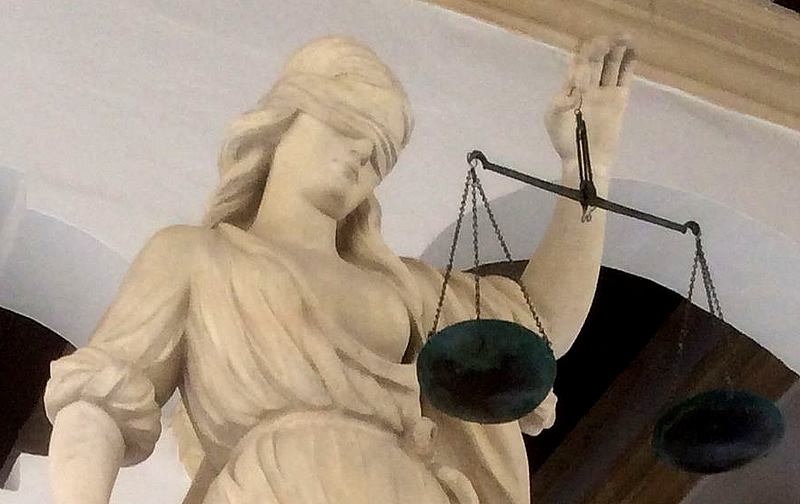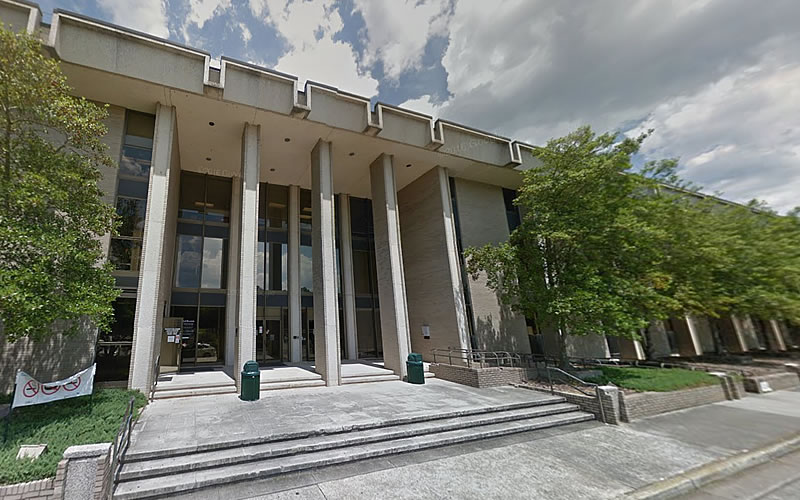INSIDE ISSUE 19.04 | Jan. 24, 2020
BIG STORY: Protections sought for child offenders in large bill
NEWS BRIEFS: ‘Green’ package seeks carbon-free S.C., protection from pollution
COMMENTARY, Brack: Thank a teacher
FEEDBACK: Send us your thoughts
This is the “better late than never” issue. Due to a medical issue, publication of Friday’s issue was delayed until today. We apologize for the delay of this limited edition.
Protections sought for child offenders in large bill

By Lindsay Street, Statehouse correspondent
JAN. 24, 2020 | Five senators began work this week on a bill seeking to make the state’s juvenile system more rehabilitative.
“The bill seeks to promote the best interest of children through family-based and community-centered solutions while limiting the removal of children from home, school, and the community,” Darlington County Democratic Sen. Gerald Malloy posted on social media this week. Malloy is the lead sponsor of the South Carolina Juvenile Justice Reform Act (Senate Bill 1018), and chairs the five-member Senate Judiciary subcommittee preparing the reforms for floor debate by May.
But the bill faces an uphill climb toward the end of a busy session and one leading victims’ advocate in the state who said Wednesday that the bill appears to favor juvenile offenders over their victims.
About the bill
The bill is considered “phase two” — the state raised the age of a criminal offender to 18 in 2019 — looking to address inequities where juvenile offenders may get harsher treatment than their adult peers, Malloy said. For example, a simple possession of marijuana charge for an adult may result in fine, but a minor could be removed from school for up to 45 days, disrupting their lives, bill proponents say.
“We’ve got a mandate, my words, to end up implementing Raise the Age,” he said during a Senate Judiciary subcommittee meeting Wednesday.
Work on the bill began over the summer.
- Previous coverage: More SROs in schools often means more children being charged with crimes, experts say. Read more.
The bill’s sponsors and juvenile justice advocates say children in the state are being unnecessarily taken out of school and their communities for offenses that could be handled from within. Lost time in school sets kids up for future failure, they say.
Here’s what’s in the bill so far:
- A Children’s Bill of Rights to ensure that children’s interests are protected while in state custody;
- Structured decision making tools for the juvenile process;
- More detailed reporting requirements from the Department of Juvenile Justice;
- A Solicitor’s Office civil citation program and at least one pre-detention intervention program that seeks to divert children from the state system;
- A Juvenile Justice Improvement Fund to help build community-based diversion programs;
- Limiting pre-trial detention of children;
- Preventing the incarceration of children with serious mental illness and disabilities; and,
- Minimizing disruptions to a child’ education.
Advocates push for amendments
South Carolina Victims Assistance Network Executive Director Laura Hudson of Columbia was the first to address the panel Wednesday. She urged lawmakers to amend the bill heavily so that victims and non-offender children aren’t put in harm’s way by keeping minor offenders in school and the community
“We have more crime victims than we do offenders and I’m trying to express their feelings,” she said. “Why do we want to favor the offender? There are other people whose feelings and safety have to be considered.”
Lawmakers asked Hudson to submit any proposed amendments to the panel. But her comments were addressed by bill sponsor and Orangeburg Democratic Sen. Brad Hutto.
“There is a reason why we have a juvenile system and an adult system … Maybe we can turn their lives around. Maybe there is a better way to deal with children rather than warehousing them,” he said. “If we take children out of their schools for any period of time we are throwing them off track.”
The National Association for Rational Sexual Offense Laws South Carolina advocate Don Thurber of Easley said he supports the bill and wants it to move forward. The group works to prevent what they see as erosion of civil liberties by state and local governments in response to concerns over sexual predators.
“We are dealing with adolescent behavior and experimentation,” he said of the crimes, adding that they aren’t “general sessions” offenses but children are getting “horrific adult penalties.” “Juvenile offenders who commit these crimes only very rarely commit new crimes as an adult.”
University of South Carolina School of Law professor Josh Gupta-Kagan said the bill would be “a significant step forward in our juvenile justice system.”
“We need a rehabilitative system. That’s good for all of us,” he said.
At the tail end of Wednesday’s meeting, lawmakers assessed their progress.
“We need to digest this and look at it and plan on one more subcommittee meeting with the idea that any amendments anyone has,” Hutto said. “I don’t think it’s ready to go to full committee.”
Malloy agreed.
“We know if we don’t get it right, it won’t go forward,” he said after the meeting. “We’ve got to get it to the floor. We have a good opportunity to pass it. If we don’t, we will fail the children of our state.”
A follow-up meeting has not yet been scheduled.
- Have a comment? Send to: feedback@statehousereport.com
‘Green’ package seeks carbon-free S.C., pollution protection

By Lindsay Street, Statehouse correspondent
JAN. 24, 2020 | A package of bills introduced this week proposes massive conservation goals to make the South Carolina greener, implement reporting requirements, and ban offshore drilling.
Democratic state Sen. Vincent Sheheen of Camden’s environmental package includes six bills and three joint resolutions that seek to:
- Conserve 30 percent of the state’s land by 2030;
- Target black market reptile and amphibian sales;
- Require the S.C. Department of Health and Environmental Control (DHEC) to provide public notice within 24 hours of a major spill or environmental contamination;
- Require DHEC to control stormwater discharge from facilities dealing with plastic pellets;
- Increase penalties for dumping solid waste and litter on private land;
- Ban offshore drilling;
- Task the State Energy Office to make the state carbon-free by 2050;
- Task DHEC with developing a five-year plan to reduce organic waste production by 50 percent by 2025; and,
- Create a collaboration between state agencies to develop a strategy to prevent and reduce plastic pollution in the ocean.
In a press release, state Democrats praised the package as “the most comprehensive package of environmental conservation legislation in South Carolina’s history.”
In related news:
- A bipartisan bill that would ban local governments from approving or permitting offshore drilling in the state was introduced this week. House Bill 5012 was referred to the House Committee on Agriculture, Natural Resources and Environmental Affairs.
- A bill that would implement a statewide ban on offshore drilling has gained two additional sponsors this week, bringing its total to 72, comprising 58 percent of the House. S.C. Reps. David Mack, D-Charleston, and Jerry Govan, D-Orangeburg, signed onto the bill. This bill along with its rival bill remained on the House’s contested calendar for second reading without debate this week. Read our coverage from last week about how the House is poised to settle the question of offshore drilling this session.
- A Senate bill that seeks to ban offshore drilling (S. 870) will be heard by the full Agriculture and Natural Resources Committee 9 a.m. Jan. 30 in room 207 of the Gressette building at the Statehouse in Columbia. More info.
In other news:
![]() McMaster’s office goes silent on refugees. Gov. Henry McMaster did not meet the federal deadline of Jan. 21 set by the Trump administration on whether the state will continue to accept refugees. On the same day that McMaster spokesman Brian Symmes told Statehouse Report that the Governor’s Office would announce by the deadline, a federal judge in Maryland issued an injunction barring the Trump administration from implementing the president’s order that states must give consent to continue accepting refugees. It remains unclear what the injunction means for states like South Carolina that have not responded to the initial order. Symmes has not responded to multiple attempts to follow up on the matter.
McMaster’s office goes silent on refugees. Gov. Henry McMaster did not meet the federal deadline of Jan. 21 set by the Trump administration on whether the state will continue to accept refugees. On the same day that McMaster spokesman Brian Symmes told Statehouse Report that the Governor’s Office would announce by the deadline, a federal judge in Maryland issued an injunction barring the Trump administration from implementing the president’s order that states must give consent to continue accepting refugees. It remains unclear what the injunction means for states like South Carolina that have not responded to the initial order. Symmes has not responded to multiple attempts to follow up on the matter.
Bill seeks to track rape kits in S.C. A newly-introduced bill seeks to track evidence in rape cases so victims can know whether they have been tested. South Carolina has a backlog of more than 1,800 rape kits. Read more.
- Read last week’s column by editor Andy Brack on how South Carolina needs to do better and spend money on clearing the backlog of rape kits.
Vaccine hesitancy, drop in federal funds hits DHEC budget. The S.C. Department of Health and Environmental Control asked lawmakers on a budget-writing panel this week for an additional $997,000 in recurring money to help combat vaccine-preventable diseases. According to its presentation, “DHEC must be prepared to
address outbreaks and improve immunization rates.” The agency said a drop in federal funds and vaccine hesitancy has made combatting outbreaks a high priority in their budget. The money would pay for 31,000 total doses of hepatitis A and the three-part Measles, Mumps, and Rubella vaccines.
Race for utility regulators reopened. State lawmakers said they deemed 11 of the 17 candidates who have filed for the S.C. Public Service Commission unqualified, including one person currently serving on the board. Four seats need to be filled. The legislature decided this week to reopen filing for the seats. Read more.
Senators begin amending education bill. On the Senate floor, the large education package mirroring a House-passed bill started receiving amendments this week as Senate Bill 419 was debated over three days. Amendment proposals included reinsertion of a Teacher’s Bill of Rights, five extra planning days for teachers, and vouchers for private education. Read more.
Expansion of affordable housing incentives nears ratification. The Senate is poised to approve a state-level expansion of a Reagan-era federal tax credit that seeks to stimulate construction of affordable housing. After a Senate vote, it will head to McMaster’s desk. Read more.
Department of Aging leader confirmed. Former mental health counselor Connie Munn was confirmed this week by the state Senate to lead the S.C. Department of Aging, which has been newly made into a gubernatorial cabinet agency. In related news, a confirmation hearing for Greenville Republican Rep. Bobby Cox to lead the S.C. Department of Veterans Affairs will be 9 a.m. Jan. 29 in room 209 of the Gressette building at the Statehouse in Columbia. More info.
Midwives push for collaboration with health centers. The Midwifery Advisory Council asked lawmakers this week to be added to the state’s perinatal levels of care so patients are guaranteed access to hospitals in the event of health-threatening issues. Read more.
McMaster’s speech focuses on taxes. In Gov. Henry McMaster’s annual State of the State speech Wednesday, he focused on familiar themes. He called for cutting taxes, investing in early childhood education, and committing to veterans. Read the State of the State via governor.sc.gov under “Newsroom.”
2020 candidate calendar
Debate to be held in Charleston. Democratic candidates will convene in Charleston on Feb. 25 for a nationally-televised debate that is four days before the state’s primary.
- Have a comment? Send to: feedback@statehousereport.com
Thank a teacher

Editor’s Note: This column, first published in 2010, has been slightly edited.
By Andy Brack, editor and publisher | Fifty years ago in August, Frances Scott’s fourth grade class in Jesup, Ga., started a little differently than in previous years.
For the first time, it was integrated. A photo from that 1970-71 year shows 26 students in the class – 21 white and five black.
I’m there on the first row kneeling and hands folded in lap between 9-year-olds named Herbert and Virgil, one black, another white. On the back row at the side stands Mrs. Scott, also black, a somewhat stout figure in a simple navy dress and shiny black dress shoes. In the picture, I also see Joey Jackson, Douglas Shaw and Mark Wiggins, three childhood friends who I haven’t seen since our family moved from Jesup in 1974. Looking at the photo forces other names to the surface — Michael, Greg, Dawn, Joanne, Tony, Chuck, Wayne and Christy.
Back in July 2006, I wrote Mrs. Scott to let her know how she was the best school teacher I ever had:
“I want you to know how much I appreciate your compassion, kindness, strength and warmth all of those years ago. Enclosed is a book of columns I’ve written over the last four years in South Carolina newspapers. Read and you’ll easily see the influence of my parents, Elliott and Barbara. Read a little more closely and you’ll find your influence too. While some of them are about arcane pieces of South Carolina politics and policy, the columns strike recurring themes of fairness, justice, tolerance, acceptance and common sense.”
Nine days later, Mrs. Scott, then 75, replied:
“I looked at the envelope and said, ‘Who could be sending me a book from South Carolina?’ So I began to open it up and the first thing I saw at the top was ‘Andy Brack.’ I said, ‘It can’t be. Andy from the fourth grade. Not my fourth grade class.’ So I began to thumb through and saw the autograph. I said, ‘It must be.’
“I was so happy it brought tears to my eyes. You really made my week and added another year to my life (smile). I really know that my 37½ years of labor with children in Wayne County, plus three of my own, was not in vain.”
With the legislature back in session now, we need to remember – and thank – our teachers and those of our children.
If you really think about teachers, you realize they’re one of the nation’s most precious resources. Every year, we entrust those most precious to us, our children, to their care so they can develop into educated, young citizens who eventually will lead our cities, state and nation.
Our teachers in public and private schools often aren’t paid enough, work long hours and have to deal with situations (bad behavior, kids with cell phones, lack of resources, and on and on) that interfere with what they want to do – teach the children. Many stay up late at night grading papers or put in long hours coaching eager athletes on the field.
And for all they put up with, they stick to it.
As South Carolina embarks on another political season, we really ought to think about how we treat teachers. We ought to pay them more than a Southeastern average. We ought to invest better in their lives, just as they’re investing in our children’s lives. And we ought to recognize them for how they’ve impacted our lives.
I’m fortunate to have written the best teacher I ever had, Mrs. Scott, before she passed in 2008.
“I will cherish this book and letter,” Mrs. Scott wrote at the end of her 2006 letter. “May God continue to bless you and your family. Thanks for such fond memories. Overlook the shaky writing. It is 75 years old now (smile).”
Tell one of your former teachers how much they meant to you. Or inspire a younger one by recognizing their hard work. You will make their day.
- Have a comment? Send to: feedback@statehousereport.com.
Tell us what you think — sound off!
We love hearing from our readers and encourage you to share your opinions. But you’ve got to provide us with contact information so we can verify your letters. Letters to the editor are published weekly. We reserve the right to edit for length and clarity. Comments are limited to 250 words or less. Please include your name and contact information.
- Send your letters or comments to: feedback@statehousereport.com
ABOUT STATEHOUSE REPORT
Statehouse Report, founded in 2001 as a weekly legislative forecast that informs readers about what is going to happen in South Carolina politics and policy, is provided to you at no charge every Friday.
Meet our team
- Editor and publisher: Andy Brack, 843.670.3996
- Statehouse correspondent: Lindsay Street
Buy the book
Now you can get a copy of editor and publisher Andy Brack’s We Can Do Better, South Carolina! ($14.99) as a paperback or as a Kindle book ($7.99). . The book of essays offers incisive commentaries by editor and publisher Andy Brack on the American South, the common good, vexing problems for the Palmetto State and interesting South Carolina leaders.
More
-
- Mailing address: Send inquiries by mail to: 1316 Rutledge Ave., Charleston, SC 29403
- Subscriptions are free: Click to subscribe.
- We hope you’ll keep receiving the great news and information from Statehouse Report, but if you need to unsubscribe, go to the bottom of the weekly email issue and follow the instructions.
- © 2020, Statehouse Report, a publication of City Paper Publishing, LLC. All rights reserved.
- Read our sister publications: Charleston City Paper (every Wednesday) | Charleston Currents (every Monday)



Pingback: Statehouse Report – NEW for 5/29: Fixing juvenile justice; Teachers’ future; Open letter to racists